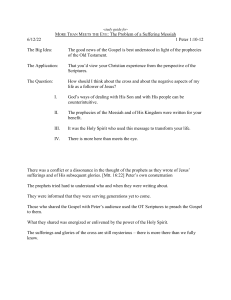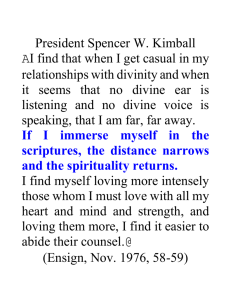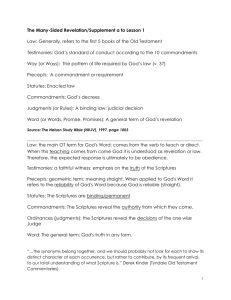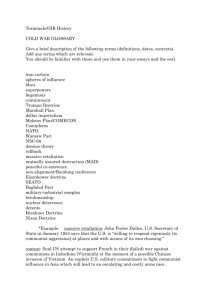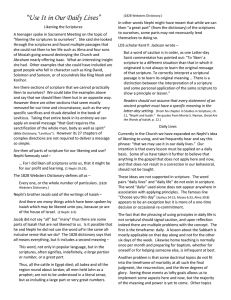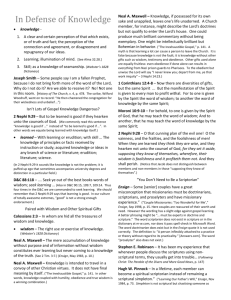Word
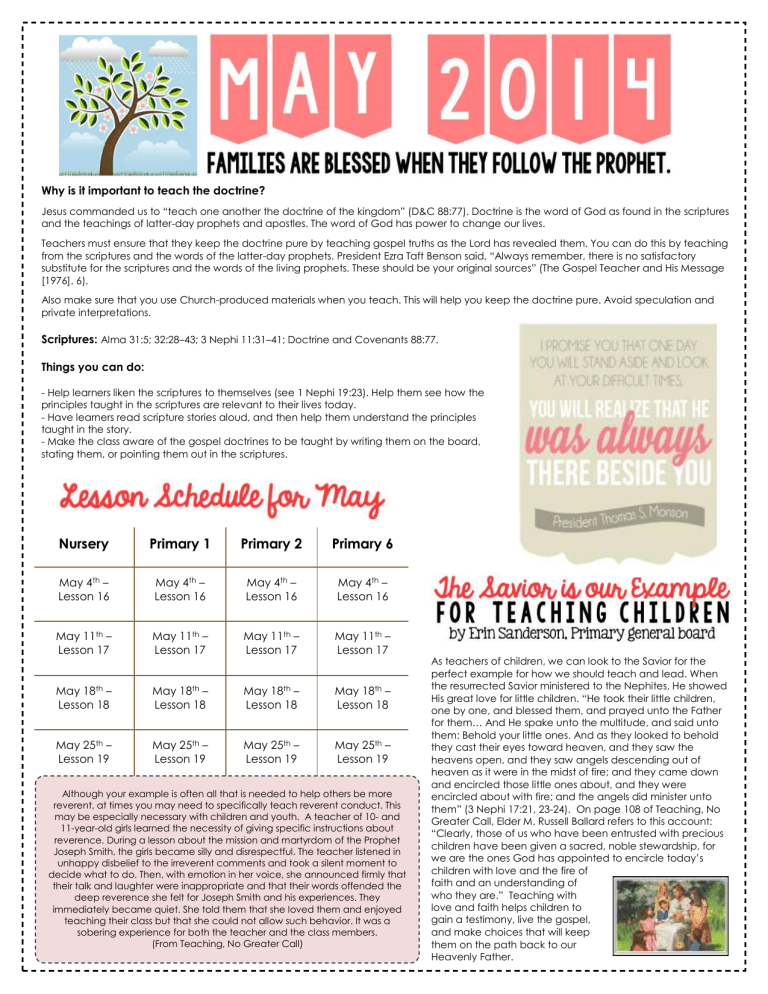
Why is it important to teach the doctrine?
Jesus commanded us to “teach one another the doctrine of the kingdom” (D&C 88:77). Doctrine is the word of God as found in the scriptures and the teachings of latter-day prophets and apostles. The word of God has power to change our lives.
Teachers must ensure that they keep the doctrine pure by teaching gospel truths as the Lord has revealed them. You can do this by teaching from the scriptures and the words of the latter-day prophets. President Ezra Taft Benson said, “Always remember, there is no satisfactory substitute for the scriptures and the words of the living prophets. These should be your original sources” (The Gospel Teacher and His Message
[1976], 6).
Also make sure that you use Church-produced materials when you teach. This will help you keep the doctrine pure. Avoid speculation and private interpretations.
Scriptures:
Alma 31:5; 32:28–43; 3 Nephi 11:31–41; Doctrine and Covenants 88:77.
Things you can do:
- Help learners liken the scriptures to themselves (see 1 Nephi 19:23). Help them see how the principles taught in the scriptures are relevant to their lives today.
- Have learners read scripture stories aloud, and then help them understand the principles taught in the story.
- Make the class aware of the gospel doctrines to be taught by writing them on the board, stating them, or pointing them out in the scriptures.
Nursery
May 4 th –
Lesson 16
May 4 th –
Lesson 16
May 4 th –
Lesson 16
Primary 1 Primary 2 Primary 6
May 4 th –
Lesson 16
May 11 th –
Lesson 17
May 18 th –
Lesson 18
May 25 th –
Lesson 19
May 11 th –
Lesson 17
May 18 th –
Lesson 18
May 25 th –
Lesson 19
May 11 th –
Lesson 17
May 18 th –
Lesson 18
May 25 th –
Lesson 19
May 11 th –
Lesson 17
May 18 th –
Lesson 18
May 25 th –
Lesson 19
Although your example is often all that is needed to help others be more reverent, at times you may need to specifically teach reverent conduct. This may be especially necessary with children and youth. A teacher of 10- and
11-year-old girls learned the necessity of giving specific instructions about reverence. During a lesson about the mission and martyrdom of the Prophet
Joseph Smith, the girls became silly and disrespectful. The teacher listened in unhappy disbelief to the irreverent comments and took a silent moment to decide what to do. Then, with emotion in her voice, she announced firmly that their talk and laughter were inappropriate and that their words offended the deep reverence she felt for Joseph Smith and his experiences. They immediately became quiet. She told them that she loved them and enjoyed teaching their class but that she could not allow such behavior. It was a sobering experience for both the teacher and the class members.
(From Teaching, No Greater Call)
As teachers of children, we can look to the Savior for the perfect example for how we should teach and lead. When the resurrected Savior ministered to the Nephites, He showed
His great love for little children. “He took their little children, one by one, and blessed them, and prayed unto the Father for them… And He spake unto the multitude, and said unto them: Behold your little ones. And as they looked to behold they cast their eyes toward heaven, and they saw the heavens open, and they saw angels descending out of heaven as it were in the midst of fire; and they came down and encircled those little ones about, and they were encircled about with fire; and the angels did minister unto them” (3 Nephi 17:21, 23-24). On page 108 of Teaching, No
Greater Call, Elder M. Russell Ballard refers to this account:
“Clearly, those of us who have been entrusted with precious children have been given a sacred, noble stewardship, for we are the ones God has appointed to encircle today’s children with love and the fire of faith and an understanding of who they are.” Teaching with love and faith helps children to gain a testimony, live the gospel, and make choices that will keep them on the path back to our
Heavenly Father.
